
In a surprising turn of events, recent data from the Australian Institute of Marine Science (AIMS) reveals that the Great Barrier Reef (GBR) is showing remarkable resilience, contrary to alarming headlines that have dominated media coverage. The 2023-24 Great Barrier Reef Condition Summary presents an optimistic picture of the reef’s health, challenging the narrative of imminent doom that has prevailed in recent years.
According to the AIMS report, the GBR’s average hard coral cover has increased for the second consecutive year, reaching an impressive 27% in 2024. This marks the highest level recorded since comprehensive surveys began in 1985, a fact that has been largely overlooked in mainstream media coverage.
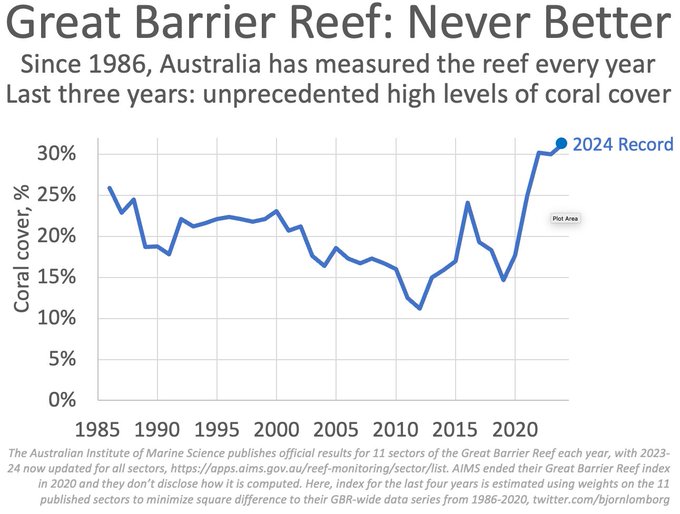
Dr. James Coral, a marine biologist with over 20 years of experience studying the GBR, explains, “While it’s true that the reef faces challenges, including recent bleaching events, the data shows an incredible capacity for recovery. The reef’s resilience is often underestimated in public discourse.”
The report does note that a marine heatwave in early 2024 caused widespread bleaching, with 60% of reefs experiencing moderate to severe bleaching. However, it’s crucial to understand that bleaching does not necessarily equate to coral death or permanent loss of cover.
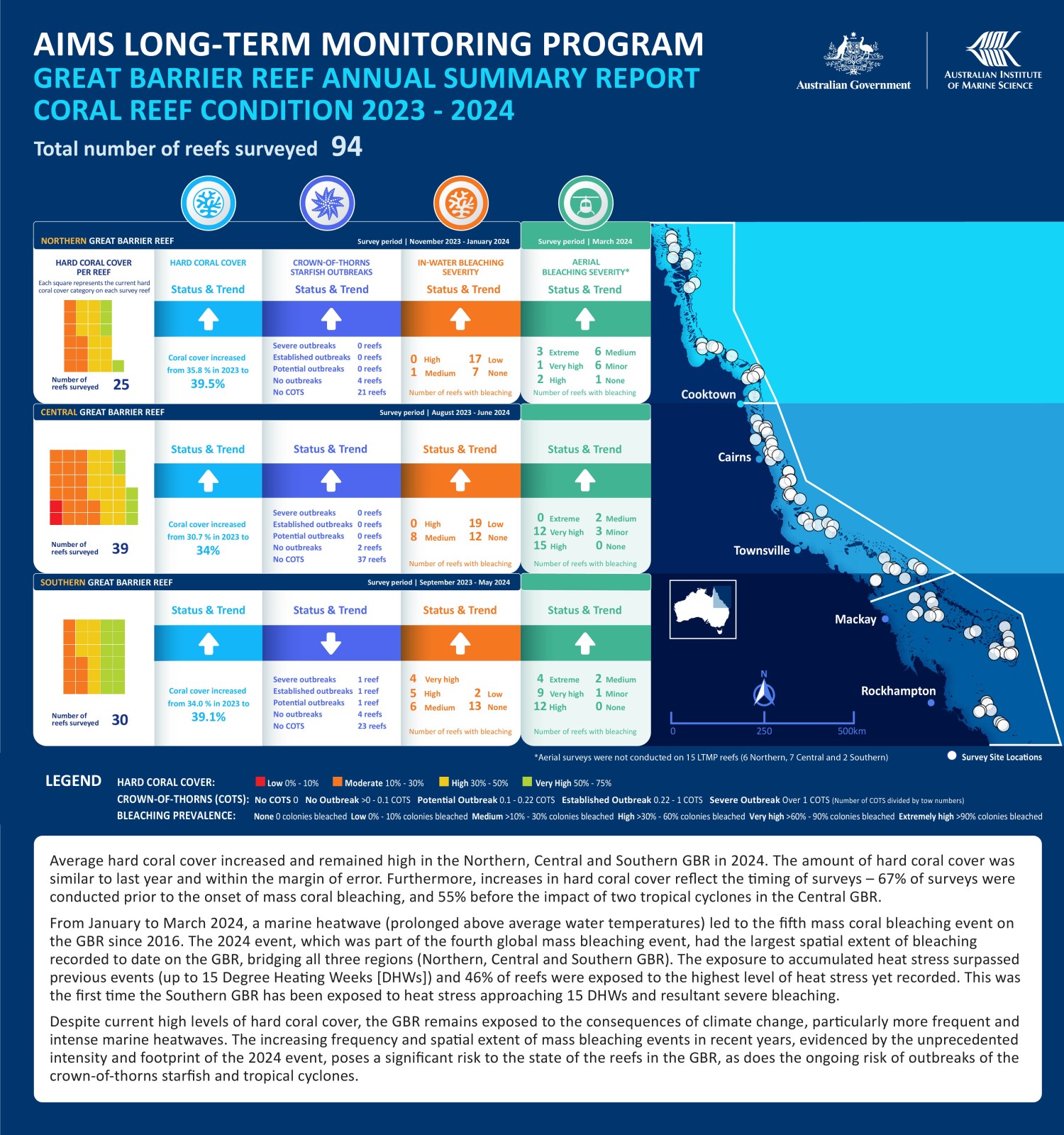
“Bleaching is a stress response, not a death sentence,” says Dr. Coral. “We’ve seen time and again that corals can recover from bleaching events, and the current data supports this view.”
Interestingly, despite experiencing six reef-wide bleaching events in the past eight years (2016, 2017, 2020, 2022, and 2024), the reef now boasts more coral cover than ever before. This paradox challenges the simplistic narrative that bleaching events inevitably lead to reef destruction.
The AIMS data shows varying mortality rates across different regions of the GBR, with the northern region experiencing the highest levels at 30%, while the central and southern regions had lower rates of 20% and 10%, respectively. Yet, even with these impacts, the overall trend remains positive.
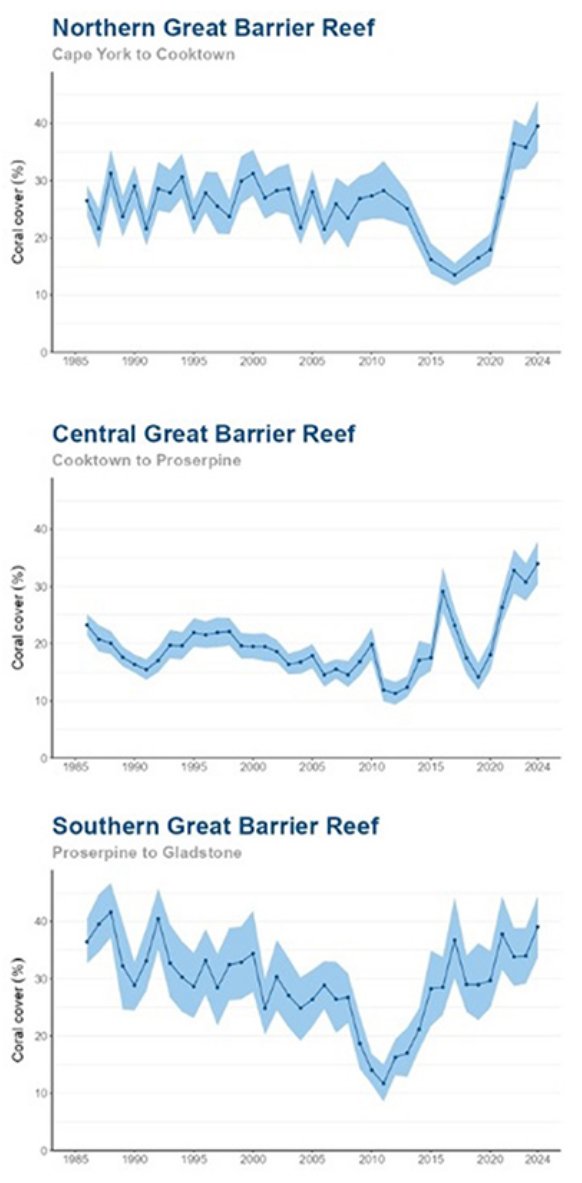
Dr. Emma Reef, a climate scientist specializing in marine ecosystems, offers a balanced perspective: “While we shouldn’t downplay the threats faced by the GBR, it’s equally important to recognize its resilience. The current high coral cover, despite recent disturbances, is a testament to the reef’s ability to adapt and recover.”
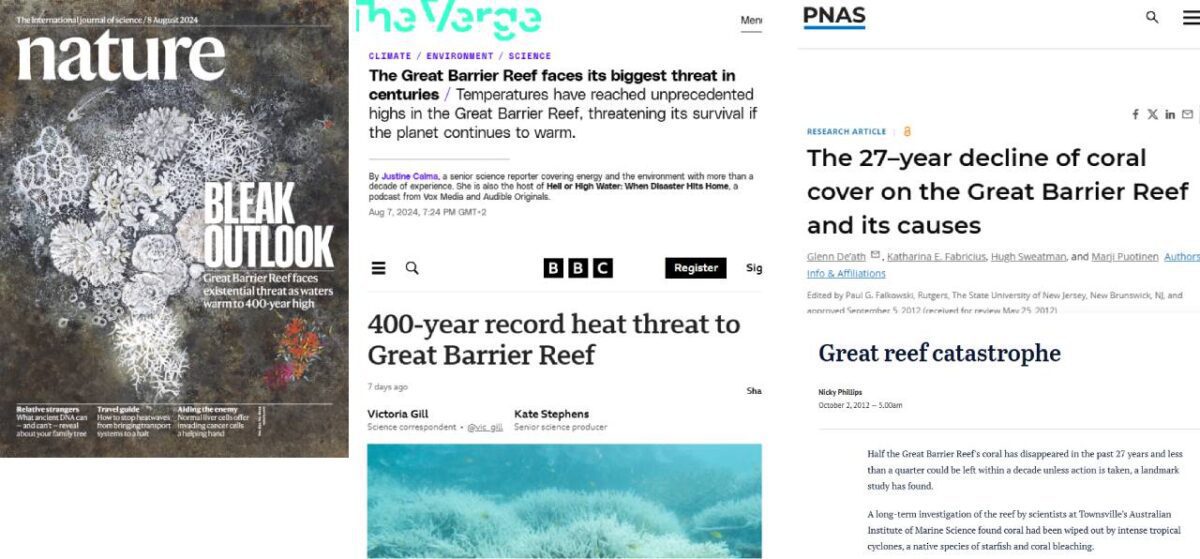
Critics argue that some institutions and media outlets may be biased towards negative narratives. For instance, when coral cover reached record highs, some measuring institutes stopped publishing reef-wide indices, focusing instead on potential future problems.
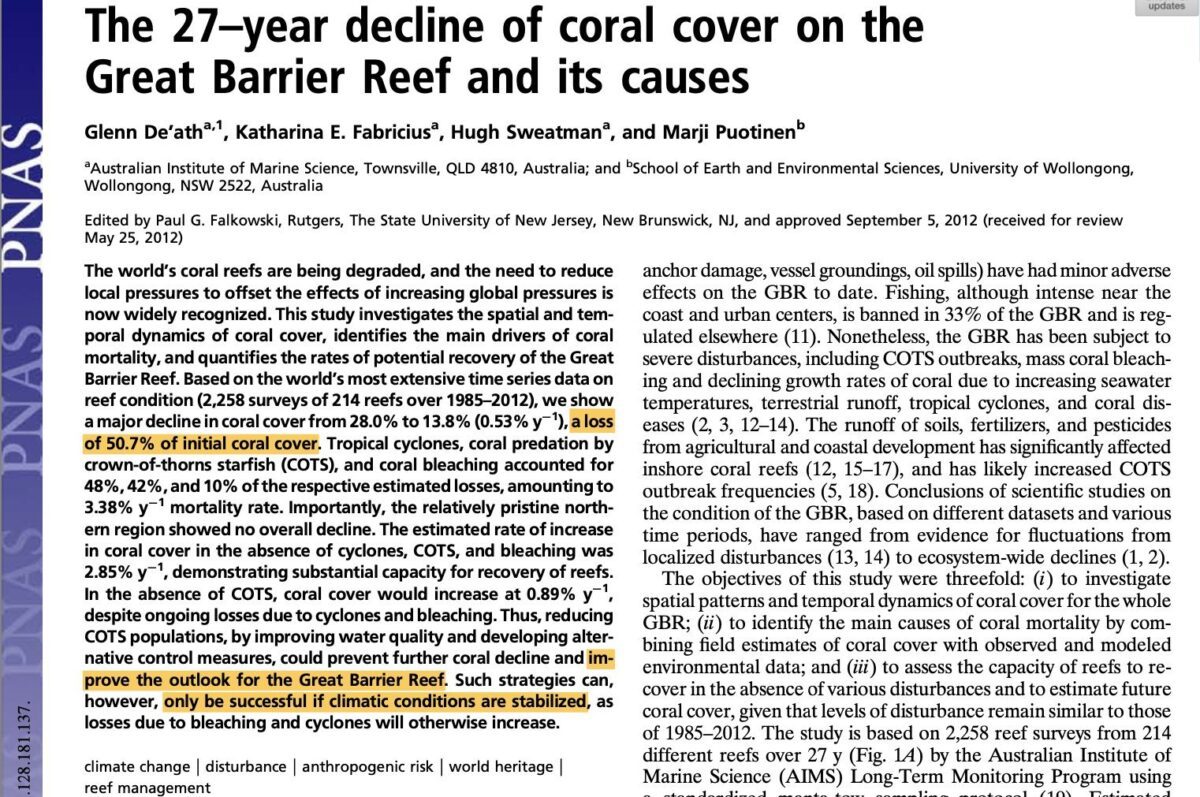
A 2012 article predicting that the GBR’s coral cover would halve by 2022 to 5-10% has proven to be overly pessimistic. In reality, 2024 saw the fourth-highest coral cover for the Southern GBR, and the highest-ever coral cover for both the Central and Northern sections of the reef.
Dr. Reef adds, “It’s crucial that we base our understanding on comprehensive, long-term data rather than isolated events or short-term fluctuations. The GBR’s recent recovery demonstrates the importance of this approach.”
While acknowledging the challenges posed by climate change and the need for continued conservation efforts, experts emphasize the importance of presenting a balanced view of the GBR’s condition. The reef’s demonstrated resilience provides hope and underscores the value of ongoing protection and research efforts.
As we move forward, it’s clear that a more nuanced understanding of coral reef ecosystems is necessary. The Great Barrier Reef’s recent recovery serves as a powerful reminder of nature’s resilience and the potential for positive outcomes when given the chance to thrive.
References:
Highest ocean heat in four centuries places Great Barrier Reef in danger, Nature, 7 August 2024
New 400-year temperature record shows Great Barrier Reef is facing catastrophic damage, researchers warn, 7 August 2024
Great reef catastrophe, 2 October 2012
Long-Term Monitoring Program 2023/24, AIMS Great Barrier Reef Condition Summary, Published 7 August 2024
The Great Barrier Reef faces its biggest threat in centuries, The Verge, 7 August 2024
400-year record heat threat to Great Barrier Reef, BBC, 7 August 2024
Heat Raises Fears of ‘Demise’ for Great Barrier Reef Within a Generation, New York Times, 7 August 2024
Half of Great Barrier Reef coral lost in last 27 years, BBC, 2 October 2012
The 27–year decline of coral cover on the Great Barrier Reef and its causes, 1 October 2012
YOU MIGHT ALSO LIKE: There Is No Climate Emergency, Say 1,600 Scientists







